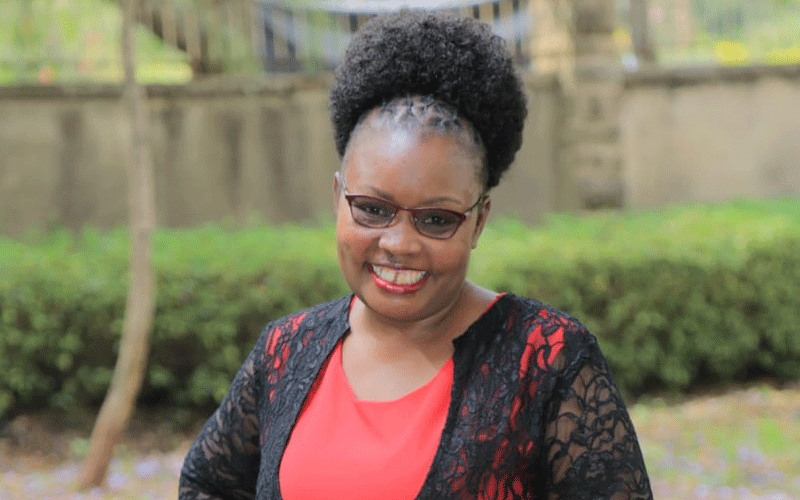Adapting to the new normal post Covid-19 pandemic

Amid uncertainty about when the pandemic will end, one thing is for sure; that coronavirus crisis will reshape our lives in ways we never imagined.
Evelyn Makena @evemake_g
How long will the Covid-19 outbreak last? This is a question that is lingering on many people’s minds, but one for which there is no definite answer.
However, amid the uncertainty about the end of the pandemic, one thing is for sure; that coronavirus crisis will reshape our lives in ways we never imagined.
The concern for now is how we will reinvent ourselves and adapt to the new normal.
Going digital
Four months ago, Prince Ndwiga did not foresee a scenario where students would be learning from home.
For Prince, co-director, Ruiru Senior School, learning worked best when done in physical classrooms where teachers could have in-person interaction with learners.
With the government ordering closure of schools after the outbreak, schools have had to look for innovative ways to keep learners carrying on with learning.
Online learning got off to a good start for Ruiru Senior School. “Our teachers set up WhatsApp groups where they have been sharing learning materials with learners.
We also engage students on Zoom and Telegram,” says Ndwiga. The experience has been an eye-opener on how the school can use the current online tools for learning even post Covid-19.
If this pandemic will teach us anything, it’s that our life (as it used to be) may not be sustainable.
We all had to experiment with digital solutions, be it virtual meetings for work, digital education for students and virtual events instead of in person conferences. 
Telemedicine and digital health may be adopted on a large scale. These proved not only to be effective, but also an environmentally-friendly way to operate in a connected world.
More working from home
Another effect of the coronavirus pandemic has been an increase in the number of people working from home.
For organisations, the current pandemic is the litmus test for the effectiveness of remote work.
Research has found that working from home has the effect of increasing productivity, improving work/life balance and decreasing the rate of employee turnover.
A 2015 Stanford study that monitored 1,000 employees of a Chinese travel company found that working from home increased performance.
During the nine-month period of the study, working from home increased performance by 13 per cent and reduced employee turnover rate by 50 per cent.
Also, organisations may explore this option to mininise on office space, hence cutting costs.
Social distancing to continue
While it is possible that some people will go back to normal levels of social activity as soon as possible, others may experience health or social anxiety and struggle with the loss of social interaction. 
People will be more reluctant to have physical contact with others, and we’ll see a reduction in gestures such as hugs and handshakes.
Susan Kahema, a counsellor says the new normal will require striking a delicate balance between taking safety precautions to prevent coronavirus while also maintaining relationships.
Reduced social interactions could lead to loss of intimacy and connection between families.
The new normal may also erode the societal and cultural support systems, especially during communal events such as weddings and funerals.
That said, people will need to put more effort to ensure relationships do not break down even as they take safety precautions.
“There are communities that bond over having a meal in the same plate such as the Waswahili. They will need to adjust and find for other ways to bond,” she says.
Additionally, in the pre-pandemic globalised world, we enjoyed a certain level of trust we mostly took for granted.
We could travel almost without limitations, meet people without restrictions and order products worldwide. Post pandemic, peope will most likely think twice before going somewhere or meeting someone.
Tabitha Wanjiku, a counselling psychologist says families and friends will need to be deliberate about maintaining connections.
To bond as a family, Tabitha advises to maintain open communication with loved ones and choose words wisely.
Communication is important to ensure people are not bottling up negative emotions, which could impact their mental health negatively.
She also advises families to appreciate one another, spend quality time, maintain optimism and be patient with one another.
Dangers of being too clean
Covid-19 has seen people being extra caution, washing hands, sanitising places such as offices, malls, roads and generally taking hygiene to another level. However, this may affect people’s immune system.
A lack of exposure to bacteria, viruses, and allergens prevents the normal development of the immune system, ultimately increasing the chance of disorders within this system down the road.
Overall obsessive washing ‘disrupts the normal flora, which keep you healthy by competing with harmful organisms’
Increased poor-rich gap
Basic hygiene practices such as regular handwashing with soap and water have become the new normal in a bid to stop the spread of the virus. These changes on hygiene, learning and working may be around for longer.
Amid the changes, research predicts that Covid-19, like many pandemics is likely to widen inequalities between the rich and the poor.
Proper handwashing, for example, requires that people have access to soap and water.
Digital learning requires that people have steady connection to the Internet and have the relevant devices. Setting up a home office may be a luxury only people with adequate living space can afford.
Also, the pandemic has seen many people lose jobs, businesses while others are forced to take paycuts.
Changed relationships
Relationships too have not been spared by the changes of the Covid-19 new normal. Families are spending more time together than ever before.
This dramatic change in lifestyle has had effects on families, says Geofrey Wango, a senior lecturer in Counselling Psychology at the University of Nairobi.
“It has been a challenge for couples to figure out how to parent, get along and simply live together,” he notes.
The lockdown has proved that no matter how romantic or perfect our relationship is, staying indoors with your partner is not a ball game.
Wango notes that spending all day at home for days and weeks on end has been, especially challenging for men.
“The traditional culture orientation is that men spend most of their time away from home. But now, they are forced to stay indoors with their family, which is difficult to adjust to,” he says.
But having spent time together, families will be challenged not to take each other for granted. They will make use of the little time they will have.
Still, Covid-19 has caused a strain on some relationships with a spike in divorce filings, for example, reported in Chinese cities of Xian and Dazhou in early March after the lockdown.
But Wango says that spending too much time together as a family does not necessarily need to lead to conflict.
He advises families that had drifted apart due to busy schedules before Covid-19 to spend time to re-establish their relationships and deepen the bond.



